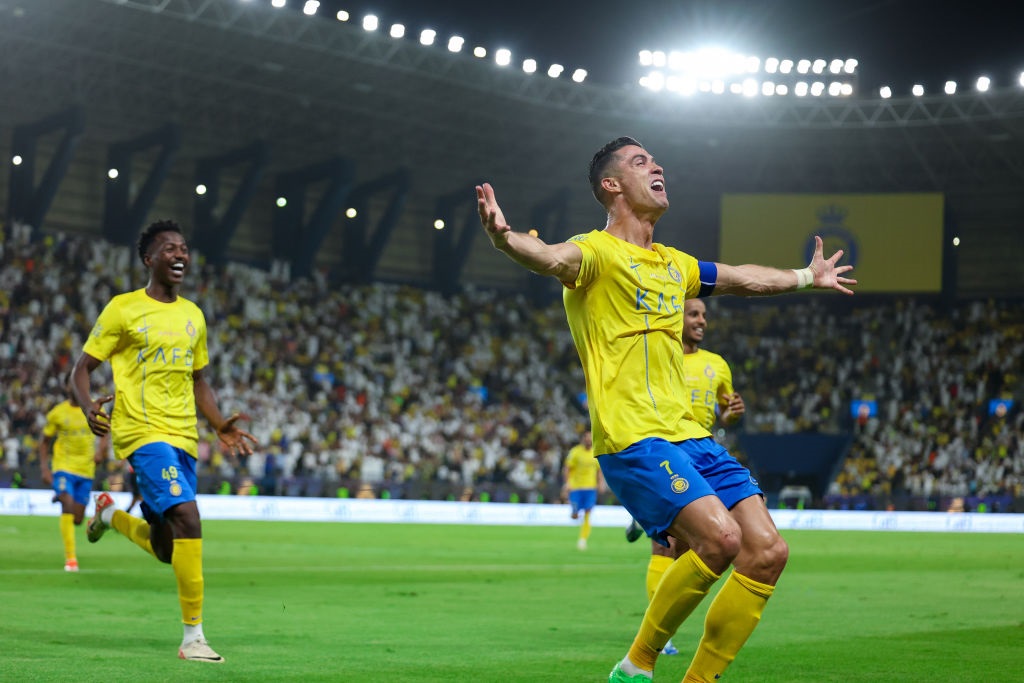Yasser Bakhsh via Getty Images
Over the past few years, the world has watched the Middle East grow its sports industry, drawing millions of viewers and the world’s best athletes. Saudi Arabia is no exception. The Kingdom’s “Vision 2030” is an initiative to diversify the economy, beyond simply oil. Part of the initiative is using sports to draw in tourism, capital, and infrastructural developments.
2024 marked a pivotal year for the kingdom as it hosted many internationally-recognized sporting events such as the Dakar Rally, the Formula 1 Saudi Arabian Grand Prix, the World Table Tennis Grand Smash, the Women’s Tennis Association Finals, and the Esports World Cup, in addition to growing the Saudi Pro League for professional football (soccer). These events signify Saudi Arabia’s emergence as a powerhouse for sports, attracting various professional athletes, fans, and media. Hosting such events show Saudi Arabia’s organizational ability to showcase athletic talent and their commitment to integrating sports into the culture of the nation. These efforts have slowly reshaped the international perception of the Kingdom, presenting it as a modern hub for athletic events, generating trust in the nation and allowing it to secure additional high-profile events, such as the FIFA World Cup 2034.
According to SURJ Sports Investments, the Saudi sports industry, currently valued at roughly $8 billion USD, is projected to reach $22.4 billion USD in 2030. This rapid growth reflects Saudi Arabia’s commitment to Vision 2030, diversifying its economy. The Kingdom has begun key developments, such as King Salman’s $23 billion dollar project to build the The Global Sports Tower, a state-of-the-art sports facility set to become the largest sports tower in the world. Additionally, Saudi Arabia has begun internal developments to accommodate the large influx of fans and tourists that will come with hosting the FIFA World Cup. The nation is enhancing their transportation system and constructing additional stadiums which align with the sustainable requirements FIFA has set for host nations. With these developments, the Kingdom will be able to host more international tournaments, enhancing their tourism and job opportunities. These infrastructural developments will also support the future long-term economic growth of the Kingdom.
The Saudi Pro League has attracted much global attention because of their significant signings of high-profile players from top football leagues like LaLiga, the Premier League, Ligue 1, and the Bundesliga. In 2024, the clubs spent roughly $1 billion USD to secure international talent, including Neymar who joined Al-Hilal from Paris Saint-Germain for roughly $98 million USD. The Pro League caught significant attention when Al-Nassr signed football legend Cristiano Ronaldo to a two-year contract worth $200 million USD. These high-profile deals have elevated the league’s presence internationally, drawing in more of a global audience. The league has attracted 40,000 to 60,000 individuals at popular matches, positioning itself as competitive in international football.
Despite its achievements and global recognition, Saudi Arabia has faced criticism, particularly the accusation of “sportwashing.” Individuals have commented that the Kingdom’s significant sports investments is a ploy to divert attention away from their controversial human rights record. The explicit scrutiny has also come from the human rights violations seen during the Qatar World Cup in 2022 with FIFA ensuring that the same issues are not repeated.
Saudi Arabia’s “Vision 2030” will continue to guide its plan to transform into a global sports hub. The infrastructural initiatives and continued hosting of various sporting events will likely elevate the Kingdom’s standing in the sporting world and general international community. Their path forward will require careful and critical navigation of the global criticism and adherence to the global standards for sustainability and human rights. Saudi Arabia’s ability to balance their economic ambitions with their responsibility within the global community will ultimately define their legacy in the sporting and political world.
Lavanya Seshasayee is the Sports Editor. Her email is lseshasa@fandm.edu.
